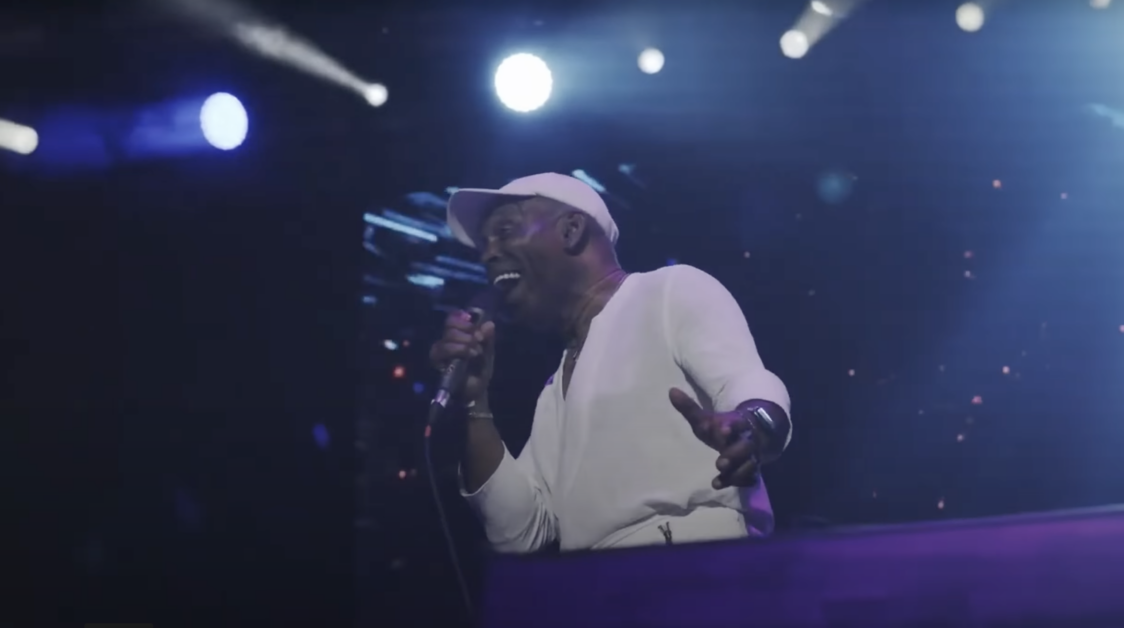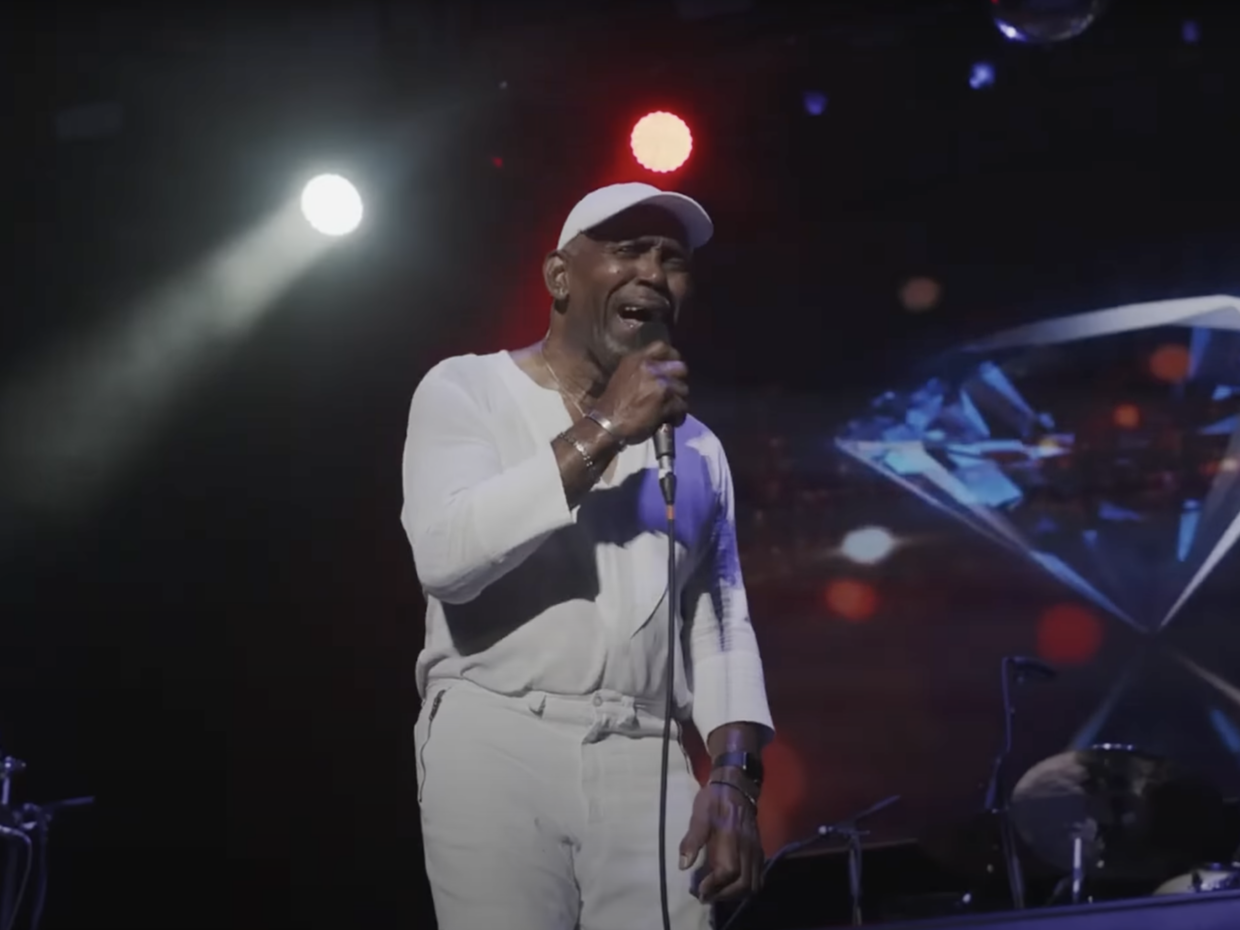Does the Hip-Hop generation have a responsibility to the giants who came before them?
This is a question the Black Promoters Collective (BPC) has grappled with for years, honing their focus with laser-like precision over the past year as they managed Frankie Beverly’s final tour. According to CMO A. Troy Brown and Senior Talent Buyer Walter Reeder, Jr., leaders of the promotions company supporting careers of legacy artists across genres and generations, it is not only a responsibility but an honor they take very seriously.
In the case of Frankie Beverly, the silky soul-singing lead for the group Maze, they managed the concert series from its inception at the end of 2023 to the final moment he appeared on the Dell East stage in his hometown of Philadelphia on Saturday, July 6. Luminaries came out to say “Thank you” to the local son who carried Germantown on his back to the far reaches of the world. Sure, Cheryl Parker, the first Black woman to be the mayor of Philadelphia, and Eagles quarterback Jalen Hurts were in the building, but they were not the brightest stars.
@frankiebeverlyand Thank you, Philadelphia and @jalenhurts for giving Frankie B. his flowers on Saturday night! #frankiebeverlymaze #frankiebeverly
♬ original sound – FrankieBeverlyAndMazeOfficial
That honor belonged to the audience, made up of music lovers from their early 20s to their late 80s, including a group of over 30 women called “Frankie’s Angels” who followed him for over 30 years from state to state. Thousands came out in triple-digit heat to give Beverly his flowers and listen to his numerous hits. “Hits” might not seem adequate to describe songs like “Joy & Pain” and “Before I Let Go.”
For Black people, these songs are anthems. Birthday theme songs. Graduation punctuators. Wedding reception party starters. The soundtrack to the cookout.
For those who have curated, cultivated, and protected Hip-Hop for more than 50 years, his songs were (and continue to be, as sampled, covered, and interpolations of his music keep reintroducing him to new fans) integral to expressing a longing for love and unity in our community. For the moments that his songs are played— the longing is achieved as everyone joins in with gladness.
The rise of Hip-Hop and the rise of Maze featuring Frankie Beverly as a group was parallel.
In 1976, the group was signed to Capitol Records and released their self-titled debut album featuring the classic “Happy Feelings” the next year. 1976 is also the year that Grandmaster Flash would form Grandmaster Flash and the Furious Five. The late Eddie Cheeba and the great DJ Hollywood were tearing up the New York club scene. The two worlds were not warring but served as a generational dialogue pressed against the backdrop of great music and partying.
DJ Mars, a fan since the first album, offered his thoughts, noting that Frankie Beverly “helped provide the soundtrack to many Hip-Hop artists, including Steady B, K-Solo, Doug E. Fresh, Funky Four + 1, and Big Daddy Kane.”
“A party isn’t a party if the DJ doesn’t play ‘Before I Let Go,’” he added, before saying, “His influence is beyond measurable,” and thanking him for his “contributions to Black music as a whole.”
According to the Atlanta-based DJ, who is the tour and residency DJ for Usher Raymond, had that record not been made, DJs would not have the courage to do old-school sets in the middle of their jams. They turn to “Before I Let Go” to bring everyone to the dance floor regardless of age, as it is a bridge for the parent, the child, the cousin, the grandma, and whomever.
Rocky Bucano, the President and Chairman of the Board of the Universal Hip-Hop Museum agreed, remembering his days as a DJ in the 80s and how important that particular song was to his set.
“When I returned to New York in 1982 and started DJing at Club Leviticus in Manhattan, ‘Before I Let Go’ was the go-to record for DJs like myself. Whenever I needed to get the crowd in an absolute frenzy, I would mix it in,” he recalled from his days as Kool DJ Rock in the Boogie Down Bronx. “The energy in the room would skyrocket, especially during the song’s incredible bridge section. The women loved singing along to the chorus, creating an unforgettable atmosphere.”
The narrative often suggests that the divide is grand and that the rift between age groups is cavernous. Unlike other musical landscapes, those in the rap world don’t hate their parents. The music is not rebellious for rebellion’s sake. It is not anti-older people; it is anti-oppression. It is quite the opposite, and Frankie Beverly’s swan song, carefully produced by BPC in North Philly, was evidence of that.
The audience became a sea of white with men topping their outfits off with his signature dad cap.
Local up-and-comer Seraiah Nicole took the stage first as the first opening act. As much as this 20-something-year-old was the embodiment of grace, invoking her sheroes Lauryn Hill, Mumu Fresh, with a lot of Jilly from Philly, she was also anxious to bless the mic before the icon’s set. Her songs were affirming and powerful, harnessing the rich heritage of Black Lily as she stepped on the mic. The crowd graciously accepted her voice as she tried new songs for them. They also were delighted to hear her transition from singing to rapping— another way to stand on the shoulders of legends but offer it with your spin.

The second performance came from one of the lead singers of Silk, Gary “Baby G” Jenkins. While he did none of his classic songs, he understood that the Philly audience wants to be entertained and with the heat index in the outside amphitheater ranging in the early 100s, he sang and performed until there was a pool of sweat on the stage.
The other main act was The Whispers, the legendary group also birthed out of the 70s, still being held down by its two founding members, twins, Walter and Wallace “Scotty” Scott. And while the “Rock Steady” recording artists tour the house down with ballads like “Chocolate Girl,” “And the Beat Goes On,” “Love is Where You Find It,” “Are You Going My Way,” and more, the people wanted to hear Frankie Beverly, who took the stage well into the night.
The 77-year-old took to the stage in the 10 o’clock hour and performed a masterful set. It should be noted that he did not do it alone. The crowd, at many points, overwhelmed his aged voice, singing the lyrics and belting the chorus in his stead. Even former BET personality Donnie Simpson and the Eagles’ superstar were caught on the jumbotron losing themselves in the nostalgia of those anthems— that Rob Base and EZ Rock sampled… That Beyoncé gripped up and remixed … That Vivian Green made a whole vibe … and so many more have borrowed to make hits.
After his set was over, it was time for BPC to thank Frankie Beverly and his team. They did so by donating $25,000 in scholarships to the Frankie Beverly Foundation to send children to school to learn music.
Returning to the question, “What does Hip-Hop owe to the generation before us?” We owe attention. We owe reverence. We owe them preservation, a vow not to allow the musical legacy that they laid for the masses to enjoy and serve as a return point for Black joy when we get too consumed in our constant pursuit of the bag and street respect.
Rapper and producer Kwame Holland put it best when he said, “Frankie Beverly is in our collective DNA,” and dubbed “Before I Let Go” the “official anthem to bring in summer.”
“Frankie’s music is within us,” he said to AllHipHop.com, reminding fans of it being played in “parents basement parties.” “So, when making Hip-Hop and pulling from our core memories it’s only natural (and right) that we are inspired by his infectious baselines and melodies,” even as the now-retired singer is 30 years his senior.
We owe artists like Frankie Beverly big time, as he is part of the special sauce that goes into Big Momma’s potato salad. He was the only thing that calmed your uncles down while they were about to fight after drinking and playing dominos all night. He was the corporate party jam before the “Wobble” and “Electric Slide.” We owe them a debt of gratitude.
Thank you, Frankie Beverly.
